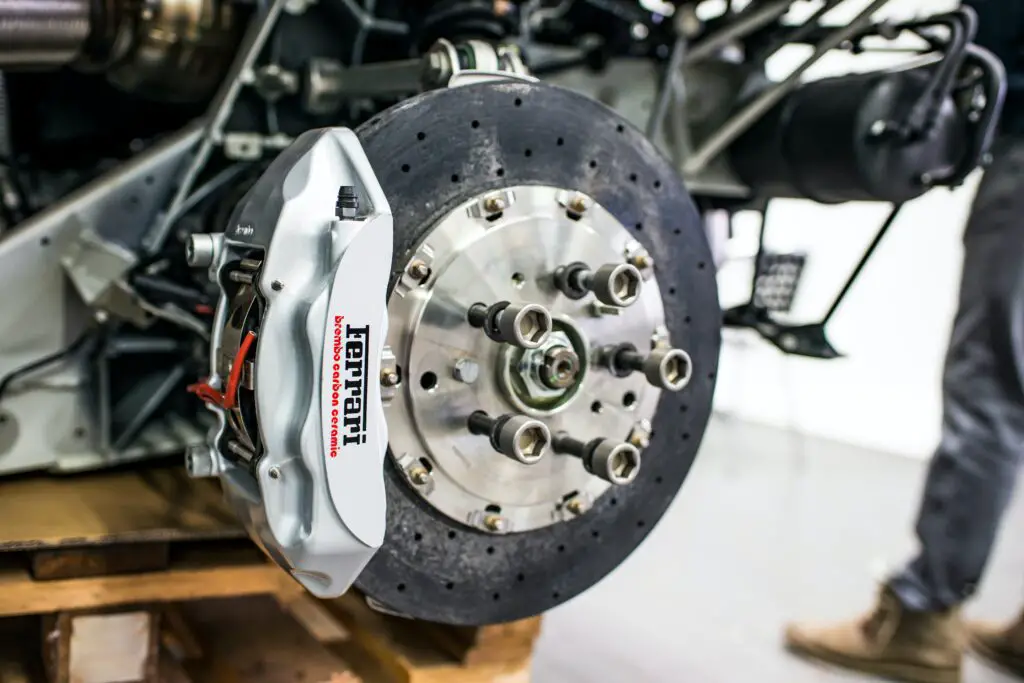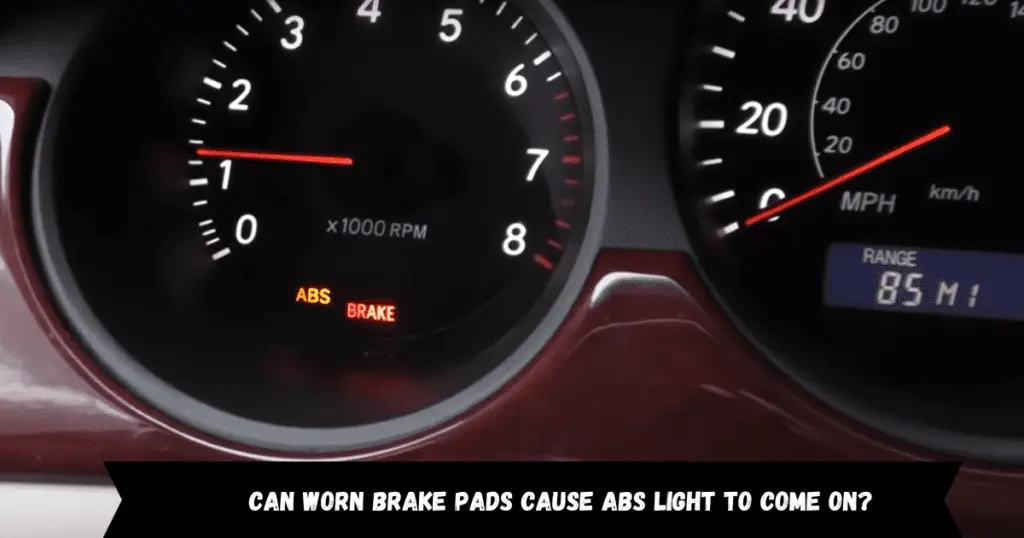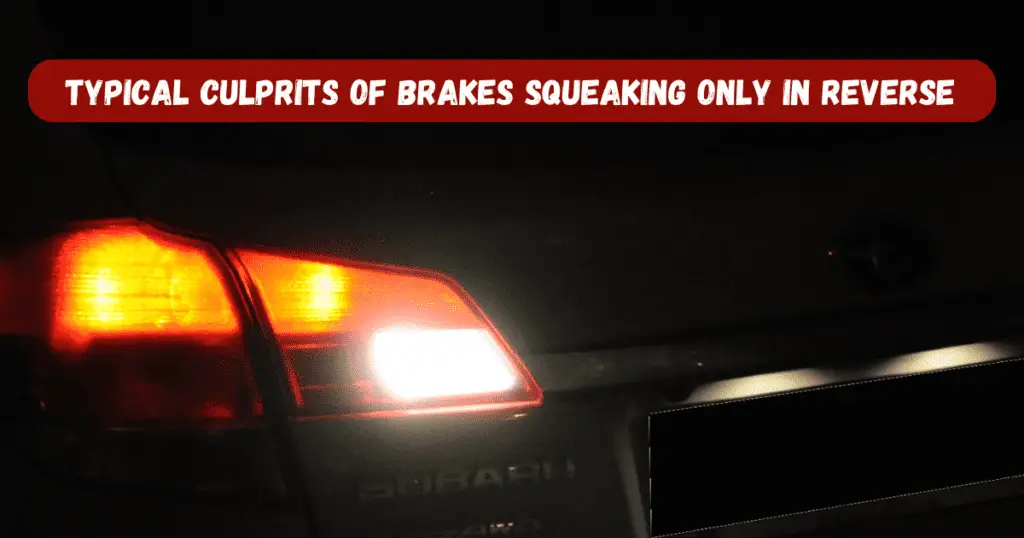Finding your car’s brakes seized after sitting overnight can be frustrating and concerning. However, in most cases, the cause is easily identified and repaired.
Seized brakes prevent your car from moving freely when you first try to drive off. The brakes may release after some persistent rocking of the vehicle or remain firmly stuck on. So what typically causes brakes to seize overnight, and what can you do to get your car moving again?
Main Causes of Brakes Sticking After Sitting
There are several common culprits when Brakes Seized After Sitting Overnight or sitting stationary for extended periods:
1. Corroded Brake Calipers
The brake caliper is a key component that squeezes the brake pads against the rotor to slow your vehicle when braking. Inside the caliper, a piston extends to apply braking force.
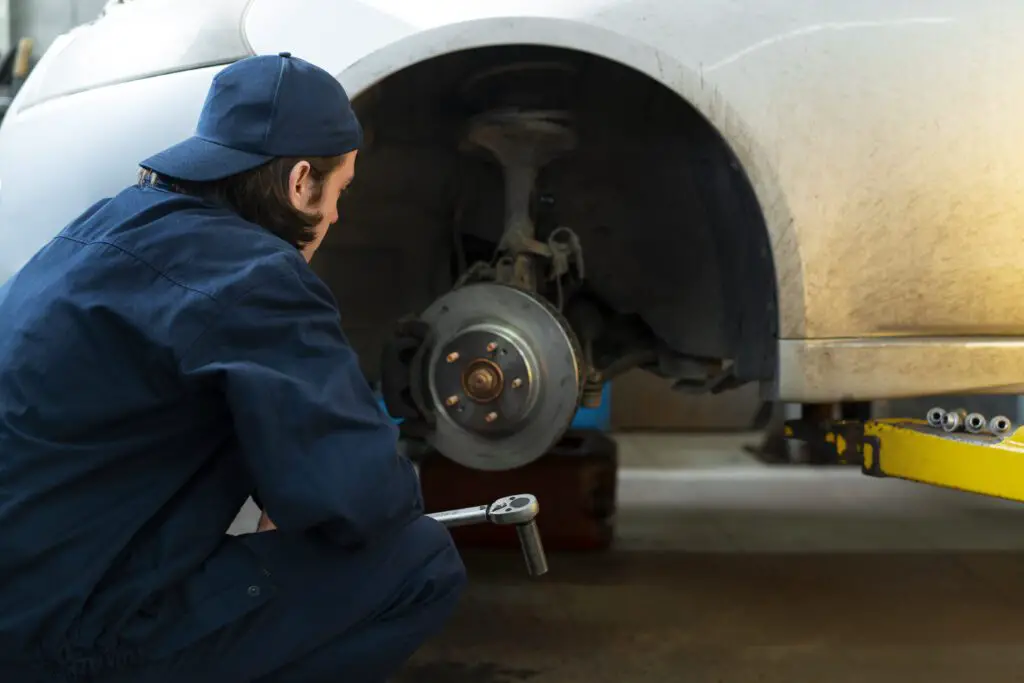
Over time, moisture and road grime can build up around caliper pistons. As your car sits motionless, this can lead to corrosion that seizes the piston in place. The brake pad then remains stuck to the rotor when you try to drive off.
Rear calipers are more prone to this issue since they also activate the parking brake. Engaging the parking brake holds the piston in one position for long periods, allowing corrosion to take hold.
2. Sticking Brake Caliper Slide Pins
Brakes Seized After Sitting Overnight. Brake calipers ride on slide pins that allow them to move as the brake pads wear down. These pins can also corrode and seize in place if moisture penetrates protected rubber boots.
When slide pins stick, the caliper cannot retract fully when you release the brakes. This leaves the pads partially dragging on the rotor, making the brakes feel stuck.
3. Rusted Brake Rotors
Even with well-maintained calipers, the rotor surfaces themselves can develop rust overnight, especially in humid climates or after rain.
This rust forms a strong bond between the rotor and brake pads. When you first press the brake pedal, the pads resist releasing from the corroded rotor surface, causing seized brake sensations.
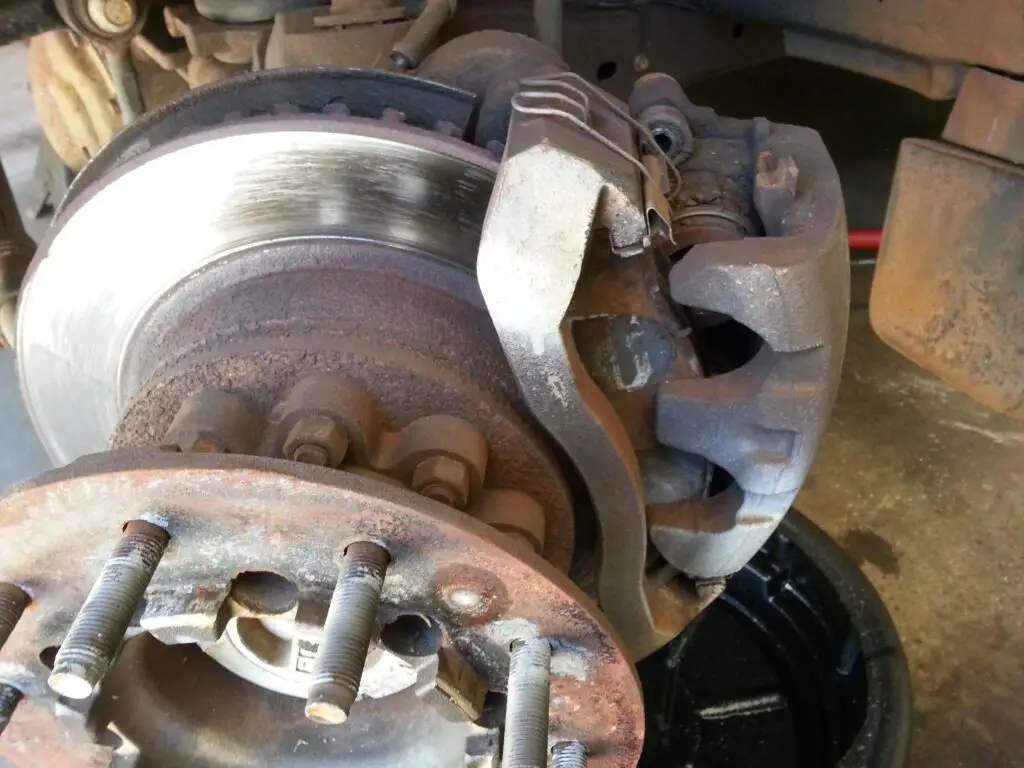

Driving a short distance usually wears away this thin rust layer and liberates the pads. However, the brakes will feel stuck upon first attempting to move.
4. Faulty Brake Hydraulics
Brakes Seized After Sitting Overnight. Issues in the brake fluid hydraulics can also lead to stuck brakes after sitting. If brake fluid leaks out, it allows air to enter the lines. Air is compressible, while brake fluid is not.
This compressible air gaps the hydraulic pressure that retracts the caliper piston when releasing the brakes. The pads then fail to fully retract from the rotor, leaving the brakes feeling seized.
5. Damaged Brake Hardware
The various springs, clips, and anti-rattle hardware around brake pads and calipers can also degrade over time. If broken or disconnected, these small parts can slip out of place and become lodged, preventing the brakes from fully releasing.
Carefully inspecting all brake hardware can identify if any damaged components are behind seized brakes. Replacing worn or broken parts restores smooth brake operation.
6. Parking Brake Cable Sticking
With rear drum brakes, a sticking parking brake cable is a prime suspect for brakes staying on after sitting. Cables can stick within their guide tubes due to corrosion and require lubrication.
On rear disc brakes, issues with the parking brake mechanism inside the caliper can also manifest as stuck brakes after parking. This is often remedied by servicing the caliper.
7. Drum Brake Faults
Rear drum brakes have more intricate interactions between springs, cylinders, and shoes. If debris enters the drums or components wear out, the brakes can easily become stuck and not fully retract as intended.
Inspecting and servicing rear drum brake hardware will help identify and remedy any issues causing the brakes to seize up. Converting to rear disc brakes is the ultimate solution to avoid further drum brake problems.
Solutions for Freeing Seized Brakes
If you find your brakes stuck after parking up overnight, here are some tips to get your car moving again:
Gently Rock the Car Back and Forth
With the brake released, gently rock the car back and forth between drive and reverse. The motion helps knock loose any lightly stuck components or rust binding the brakes on. Be cautious not to ram the stuck brakes or transmission.
Press the Brakes Repeatedly
Alternately apply and release the brakes several times. This cycling can help free sticky caliper pistons and any stuck parking brake mechanisms. It also helps wear off any rust layer causing temporary brake pad adhesion.
Check for Trapped Brake Parts
Inspect brake components like caliper slides, hardware, and parking brake cables. Look for anything trapped or binding that could be manually freed up to release the brakes.
Spray Penetrating Oil on Stuck Parts
Applying a penetrating lubricant like WD-40 or CRC 5-56 onto seized caliper slides, parking brake cables and other stuck points can help unbind components. Be cautious not to spray onto brake pads or rotors.
Loosen Stuck Caliper Bolts
If freeing a single stuck brake caliper, try loosening the caliper mount bolts. This releases tension and allows the caliper to self-adjust its position enough to retract the piston and pads. Retighten bolts once unstuck.
Bleed Brake Hydraulics
If you suspect air in brake lines, bleed all four wheels to purge any trapped compressible air pockets that could be interfering with caliper piston retraction and brake release.
Clean Away Rust on Rotors
For surface rust causing temporary pad sticking, driving a short distance will abrade away the rust layer. Alternatively, carefully wipe and sand rotors with fine-grit sandpaper to clean off rust without damaging the rotor surface.
Discourage Moisture Buildup
Prevent recurrent overnight brake sticking by parking away from sprinklers, covering your car outdoors, fixing any leaking seals, and avoiding engaging the parking brake when not needed.
Preventing Future Brake Sticking Overnight
Once you’ve freed seized brakes and got your car rolling again, consider these maintenance steps to prevent repeat sticking episodes:
- Thoroughly lubricate all caliper slide pins using high-temperature brake lubricant. Worn rubbers should be replaced.
- Use a caliper cleaning tool and compressed air to remove debris from calipers. Apply fresh caliper lubricant.
- Inspect parking brake cables for smooth movement and lubricate as needed to prevent sticking.
- Check all brake hardware like clips and anti-rattle springs. Replace any worn or damaged parts.
- Flush old brake fluid and refill with fresh, high-quality DOT4 fluid to maintain proper hydraulic operation.
- Consider converting rear drum brakes to more reliable disc brakes if dealing with repeated rear brake sticking.
Brakes Seized After Sitting Overnight. Regularly servicing your car’s brakes keeps all components moving freely and helps avoid aggravating seizing issues from developing when the car sits overnight.
FAQs About Brakes Seized After Sitting Overnight
How do you unseize brakes from sitting?
- Rock the car gently back and forth to break loose stuck components
- Press and release the brakes repeatedly to free sticky pistons
- Spray penetrating lubricant on seized caliper slides and brake hardware
- Loosen caliper mount bolts to relieve tension on stock units
- Bleed brake system to eliminate compressible air pockets
Why are my brakes stuck after sitting?
Common causes include:
- Corroded, stuck brake caliper pistons and slides
- Rusted brake rotors fusing pads in place
- Parking brake cables sticking and not fully releasing
- Faulty brake hydraulics due to air ingestion or leaks
- Broken or binding brake hardware like clips and springs
Why do brakes lock up when parked?
Brakes can lock and remain stuck on after parking if:
- The parking brake mechanism is stuck and engaged
- Brake calipers seize due to moisture corrosion
- Brake pads rust and adhere to the rotor surface overnight
- Sticking drum brake components prevent full brake release
How do you fix a seized brake piston?
- Remove the pads and rotate the pistons back into their bores using a C-clamp.
- Clean bores and pistons thoroughly to remove corrosion and old brake fluid.
- Lubricate components with high-temperature caliper grease.
- Inspect seals and replace caliper if damage allows pistons to stick again.
Conclusion – Brakes Seized After Sitting Overnight
Having your brakes seized after sitting overnight can be alarming at first. But in most cases, the cause is minor surface rust or a stuck component that can be quickly remedied once identified.
Rocking the car and pressing the brakes repeatedly will often free seized brakes on the spot to get you moving again. Then follow up with preventative maintenance and servicing to stop brakes from re-sticking after future overnight parking.
Pay attention to any emerging symptoms of components binding or sticking prematurely when braking. Addressing these issues promptly reduces the chances of dealing with frustrating seized brakes down the road.

